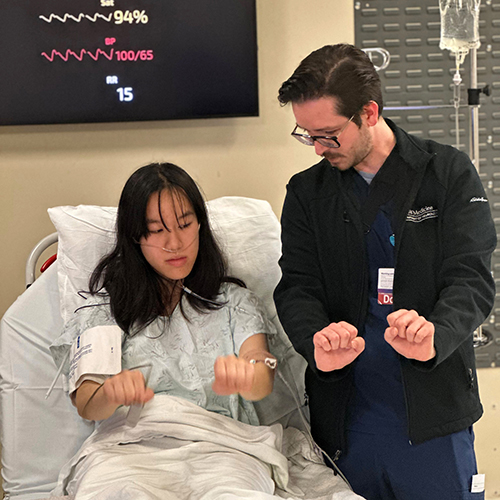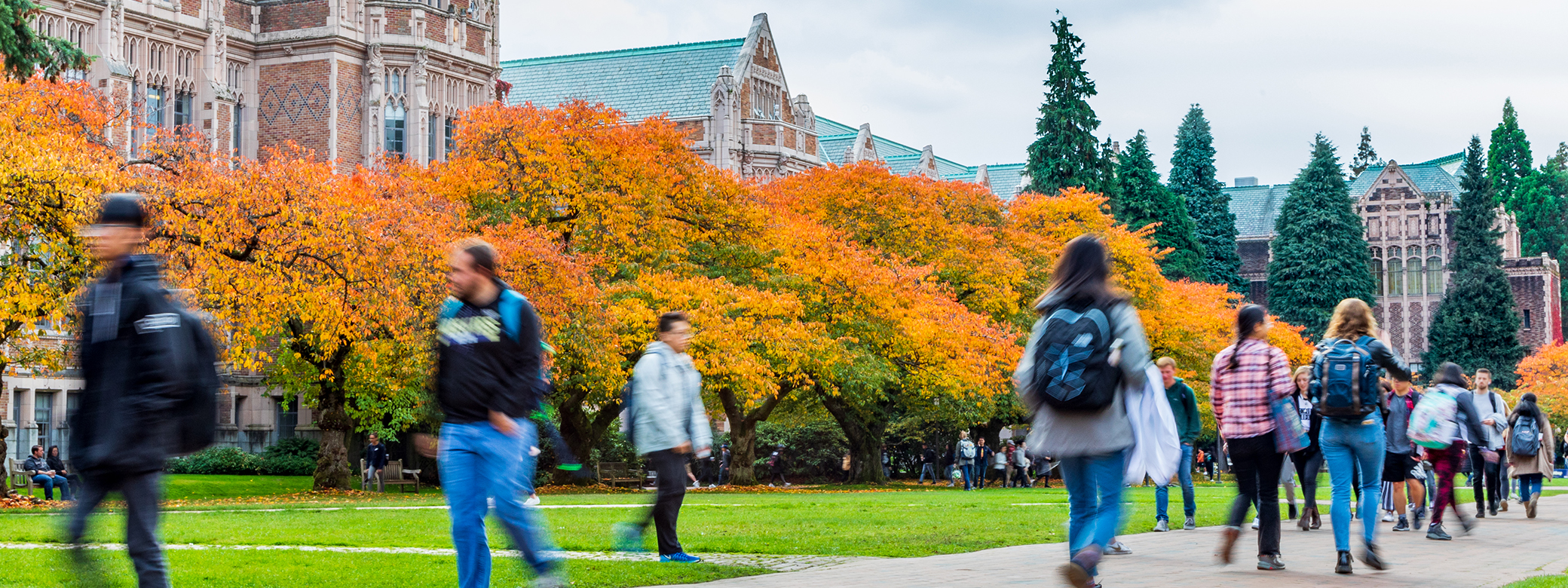-
Global Visionaries: Antonia Romana Zito
The Office of Global Affairs features Antonia Romana Zito for the Global Visionaries series. Antonia is a senior double-majoring in International Studies and History in the College of Arts & Sciences. Antonia was recognized as a 2025 Husky 100 and is passionate about advocating for migrants and refugees, being trilingual, and making a global impact.
05/07/2025 | Office of Global Affairs -
Analysis: Trump targets NPR and PBS as public and nonprofit media account for a growing share of local news coverage
"Republicans in Washington have their sights once again on defunding public media," writes Matthew Powers, associate professor of communications at the UW.05/06/2025 | The Conversation -
Survey reveals views on Asian Americans in the US
The Asian American Foundation's study shows increased concerns about Asian American loyalty and national security. Connie So, teaching professor of American ethnic studies at the UW, is quoted.05/06/2025 | KING 5 -

How Drama Students Help Train Doctors
With School of Drama students performing the roles of patients and their loved ones, simulations of clinical scenarios help UW Medicine neurology residents hone their skills,
May 2025 Perspectives -
Podcast: An Interview with Zev Handel about "Chinese Characters Across Asia"
Because of its unique status in the modern world, myths and misunderstandings about Chinese characters abound. Where does this writing system, so different in form and function from alphabetic writing, come from? How does it really work? By exploring the spread and adaptation of the script across two millennia and thousands of miles, Chinese Characters across Asia: How the Chinese Script Came to Write Japanese, Korean, and Vietnamese (University of Washington Press, 2025) by Dr. Zev Handel addresses these questions and provides insights into human cognition and culture.
05/03/2025 | New Books Network -

The Challenge of Peer-Produced Websites
Communication professor Benjamin Mako Hill studies why successful peer-produced websites (like Wikipedia) eventually struggle to maintain their openness to new contributors.
May 2025 Perspectives -
What is May Day?
Seattle sees thousands mobilize on May Day each year to advocate for immigrant and worker rights, echoing traditions starting from labor protests decades ago. James Gregory, professor of history at the UW, is quoted.05/02/2025 | KING 5 -
When ChatGPT broke an entire field: An oral history
Researchers in natural language processing tried to tame human language. Then came the transformer. Emily M. Bender, professor of linguistics at the UW, is quoted.05/01/2025 | Quanta Magazine -
The great language flattening
Chatbots learned from human writing. Now its their turn to influence us. Emily M. Bender, professor of linguistics at the UW, is quoted.04/29/2025 | The Atlantic -
Q&A: Talking Israel and Palestine with UW professor Liora Halperin
Seemingly no international issue provokes as much heartbreak, consternation and demand for moral action for many right now as the fate of Palestinians and Israelis. And few academics have as much insight into the challenges and benefits of honest discussion and scholarship about that region as Liora Halperin, professor of history and international studies at the UW.04/29/2025 | Vashon-Maury Island Beachcomber
